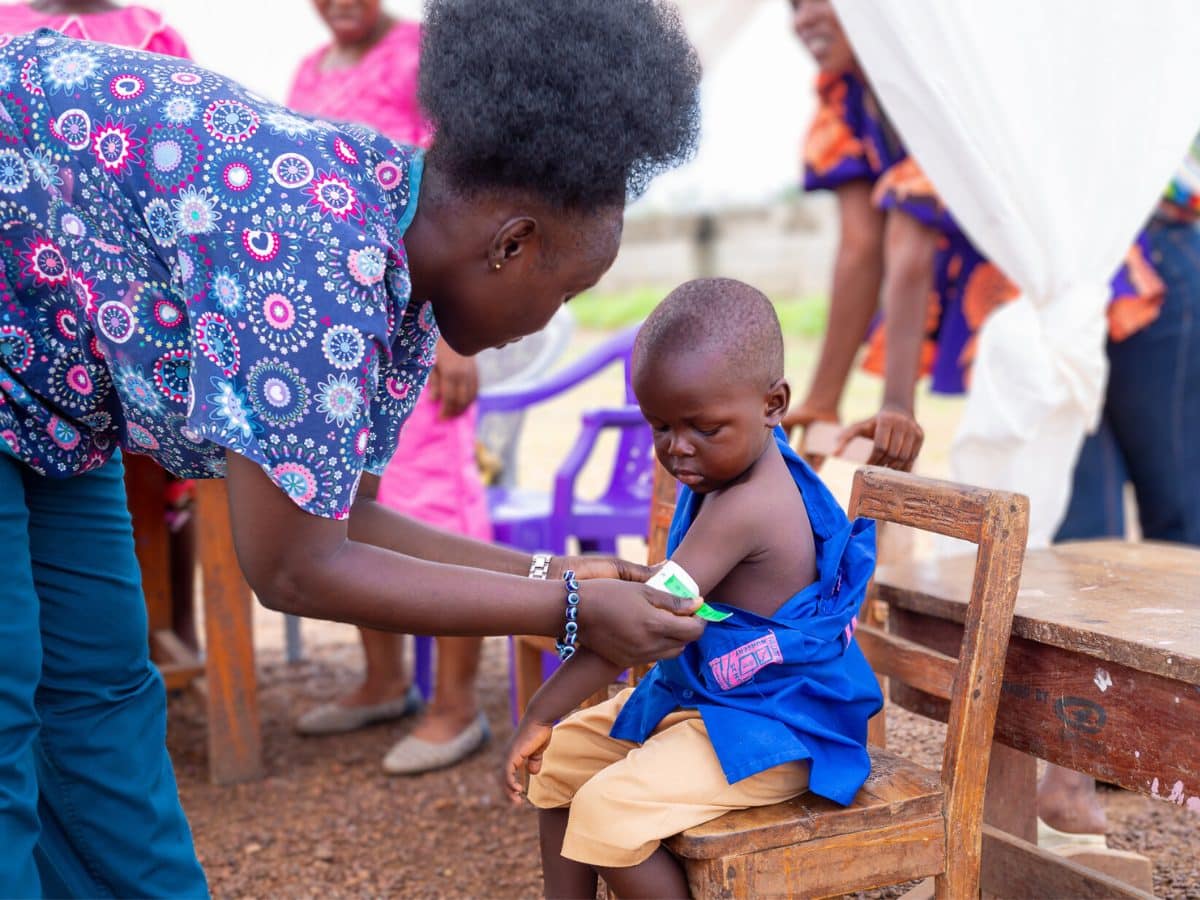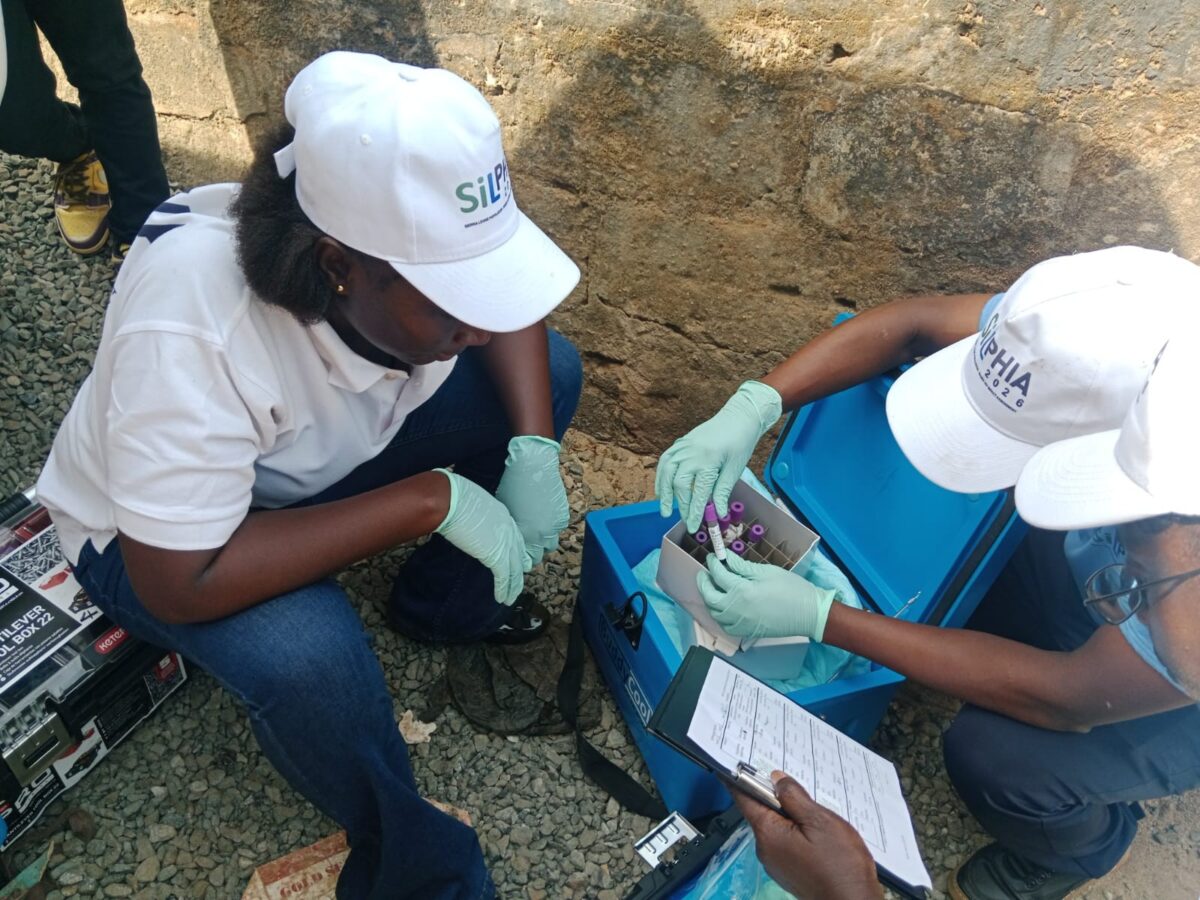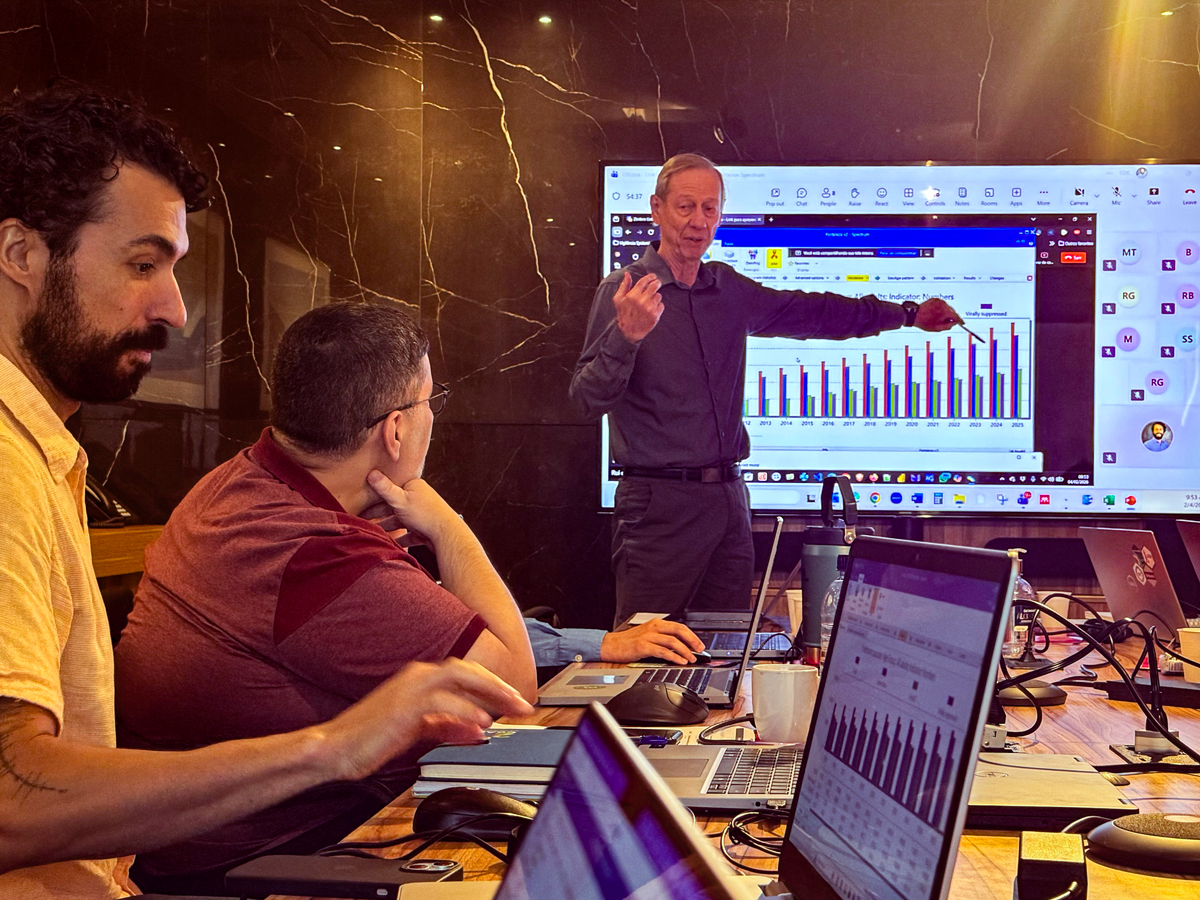“The SHINE project has improved our children’s health and has given them lifelong skills and knowledge about nutrition and hygiene,” said Yakoya Kamara. “We are grateful for the support and the positive impact this project will have on our family and the Port Loko community.”
Kamara is mother to six-year-old Medsatu, a preschooler who attends Our Lady of Lourdes Preschool in Port Loko district in Sierra Leone, one of the most populated districts in the Northern province and the second-most populated district in the country. Her family is one of more than 200 households that have benefited from the Supporting Healthy Interaction, Nurturing, and Enrichment (SHINE) initiative, a program aimed at improving health outcomes among preschool-aged children through a novel comprehensive health services model comprised of a suite of services, including the establishment of a nutritional teaching garden, school-based health services, household health visits, and community health days.
Piloted over a one-year period by ICAP in Sierra Leone, SHINE has demonstrated that this innovative model has the potential to support and improve the health of preschool-aged children.
“Our goal was to provide a holistic solution that addressed not just the children’s immediate health needs,” said Lynda Grant, program manager of the Ministry of Health’s National Child Health Program, “but also their overall wellbeing, which is essential for learning.”
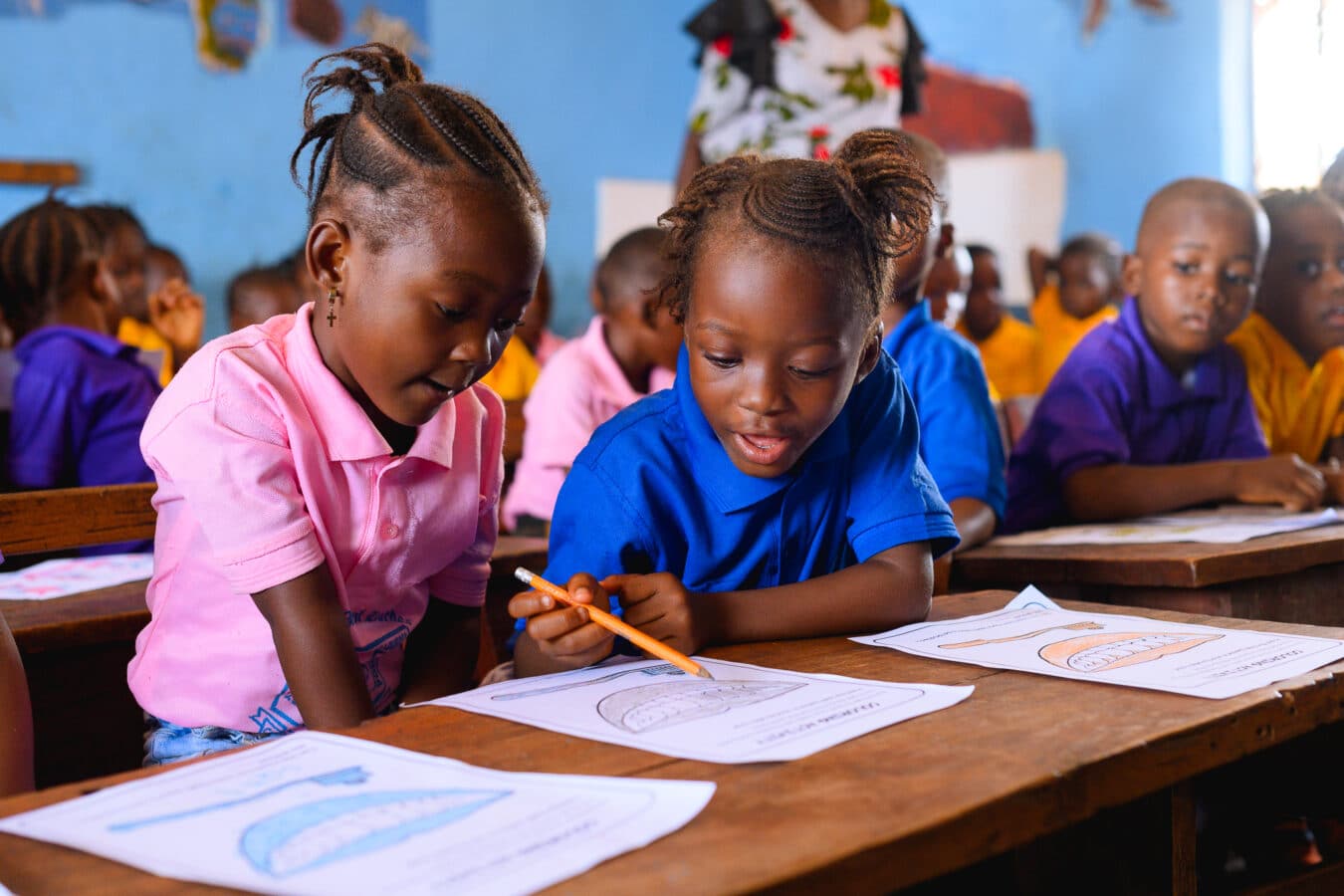
Two preschool students learn about oral hygiene during a school day.
Early childhood is a critical developmental stage that can shape a child’s future health and development. Recognizing this, the government of Sierra Leone has prioritized the establishment of early childhood development (ECD) programs to shape the trajectory of a child’s development and build a foundation for their future, a sentiment outlined in the World Health Organization’s Nurturing Care Framework.
Nevertheless, ECD programs in Sierra Leone face significant challenges due to inadequate infrastructure, limited implementation of the 2021 Integrated Early Childhood Development (IECD) policy, and severe health conditions affecting preschool-aged children. According to UNICEF, approximately 40 percent of children under the age of five in Sierra Leone experience stunted growth.
With support and funding from Columbia World Projects (CWP) under Columbia Global, and in collaboration with Sierra Leone’s Ministry of Health (MOH), Ministry of Basic and Senior School Education (MBSSE), and Ministry of Water Resources and Sanitation (MWRS), as well as the Our Lady of Lourdes Preschool administration, families, and community, ICAP in Sierra Leone piloted the SHINE initiative to address these challenges and meaningfully impact the health and wellbeing of children growing up in the country.
Prior to the pilot’s launch at Our Lady of Lourdes, the ICAP-led SHINE team coordinated a baseline assessment at which staff from the District Health Management Team (DHMT) and the MOH identified children at the school with anemia, malaria, and skin conditions, as well as those needing vaccinations or vitamin supplements. Following the start of the school year, SHINE stationed a nurse at the school to provide ongoing care and referrals throughout the day, ensuring that health services were always accessible to children.
In partnership with the Columbia Graduate School of Architecture, Preservation and Planning (GSAPP), SHINE also emphasized the value of health and nutrition outside of the school’s walls by establishing a nutritional teaching garden on the preschool grounds – which included a solar-powered irrigation system, a greenhouse, and a ramada – where children and their families could engage in hands-on learning about food production and nutrition. The garden supplied fresh ingredients for school meals, while teaching agricultural skills. ICAP developed an accompanying teaching garden curriculum composed of 10 modules, which were integrated into the school’s teaching plans.
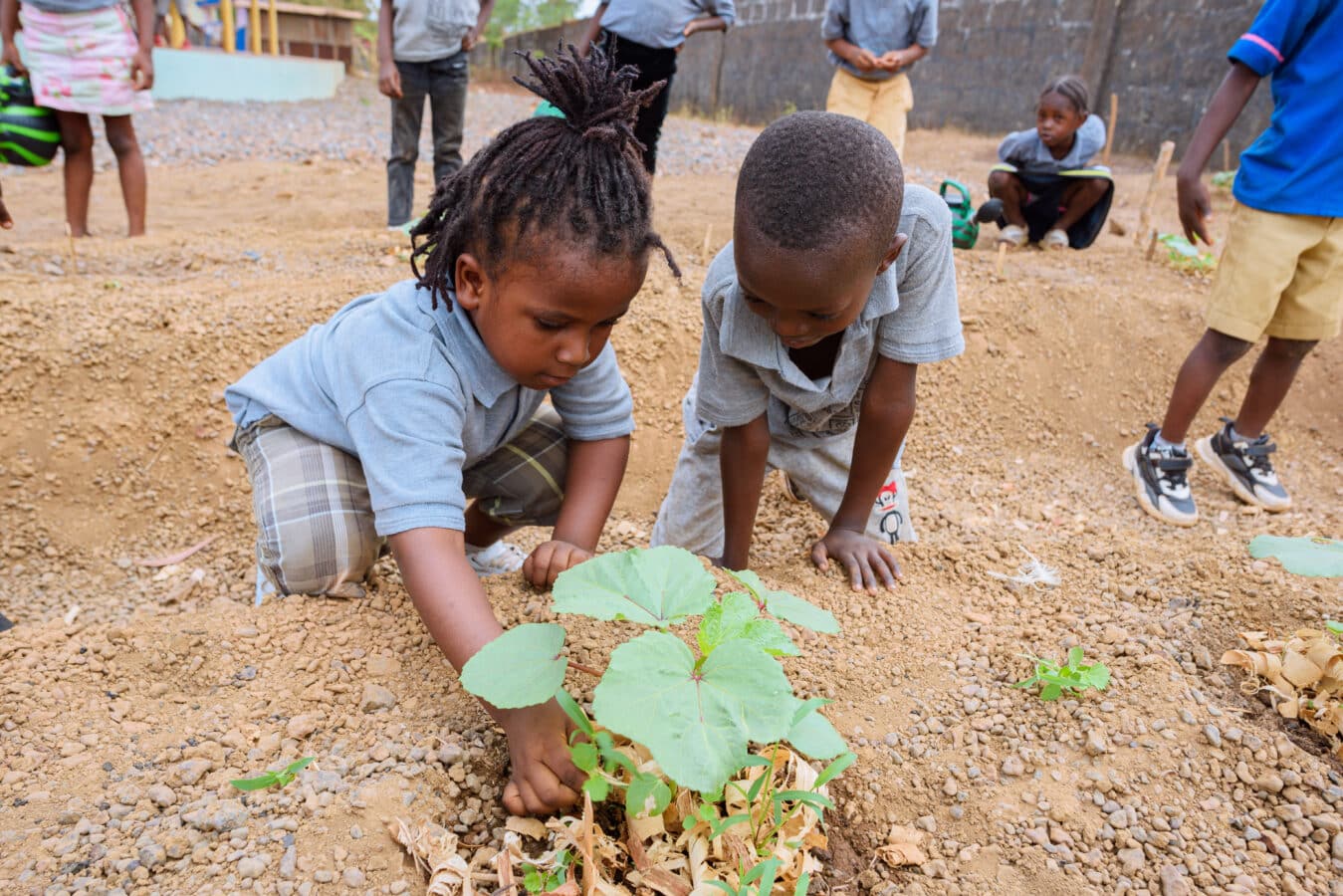
Two preschool students put to practice what they learned from the SHINE curriculum module on weeds.
“SHINE has truly transformed our lives,” said John Sahr J. Manga, father of five-year-old Sia, an Our Lady of Lourdes preschooler. “Our children’s health has improved significantly, and they have gained invaluable skills about nutrition and hygiene, which they’re eager to practice at home.”
Furthermore, household visits by community health workers extended SHINE’s reach into families’ homes, providing preschool families with health education, preventive care tips, screenings, and referrals. By June 2024, more than 250 households had received health education, and 73 children had been referred to a health facility for follow-up of a current health need.
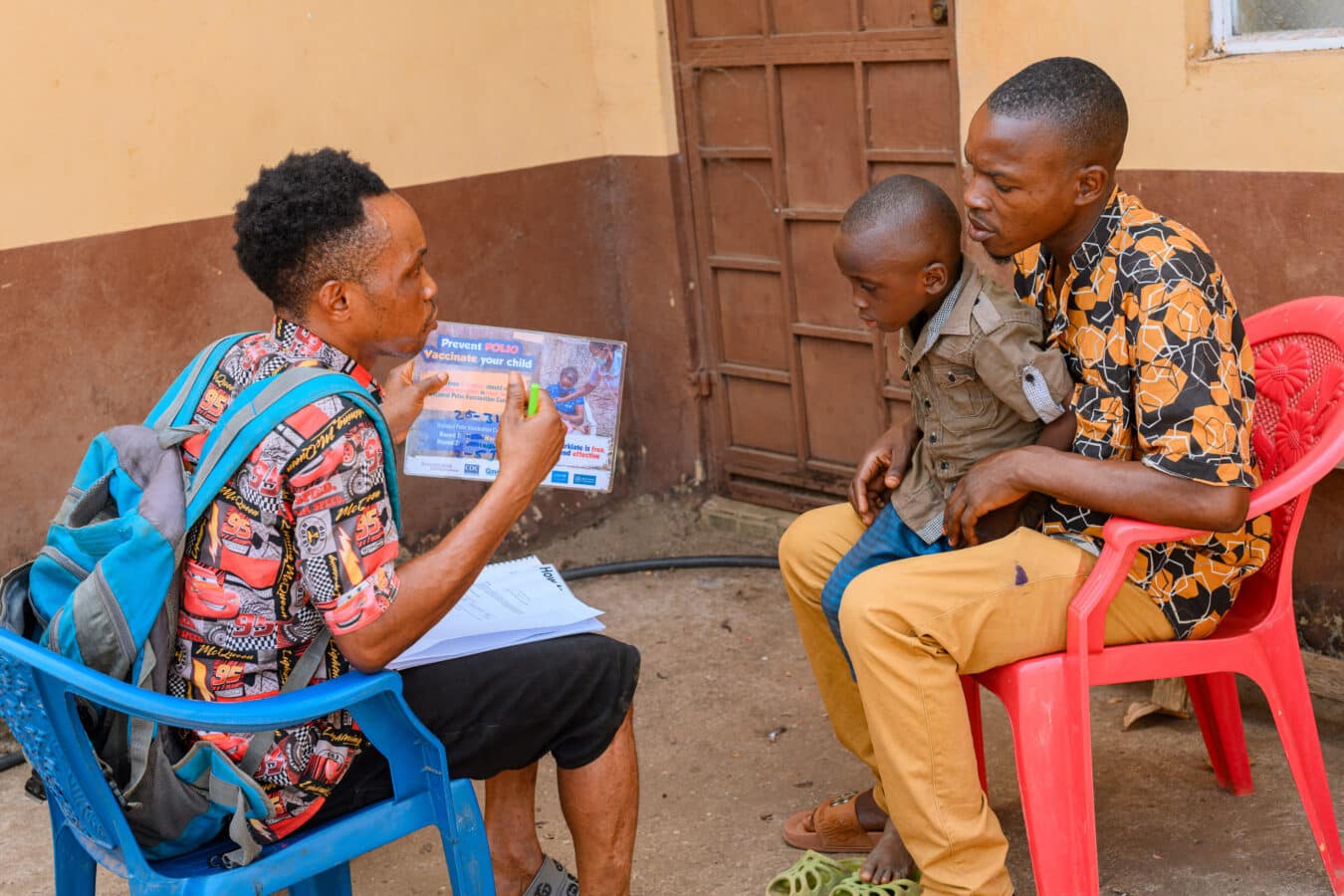
A community health worker provides health education to a family during a home visit.
Importantly, the SHINE initiative mobilized the local community to improve health outcomes of their young children and families. The program established regular community health days, which brought together local leaders, caregivers, and other families with preschool-aged children, for health education on topics such as nutrition, hygiene, and disease prevention. Free voluntary health screenings were also offered. Community days were strategically aligned with harvesting days at the teaching garden, providing opportunities for the larger preschool community to observe its benefits.
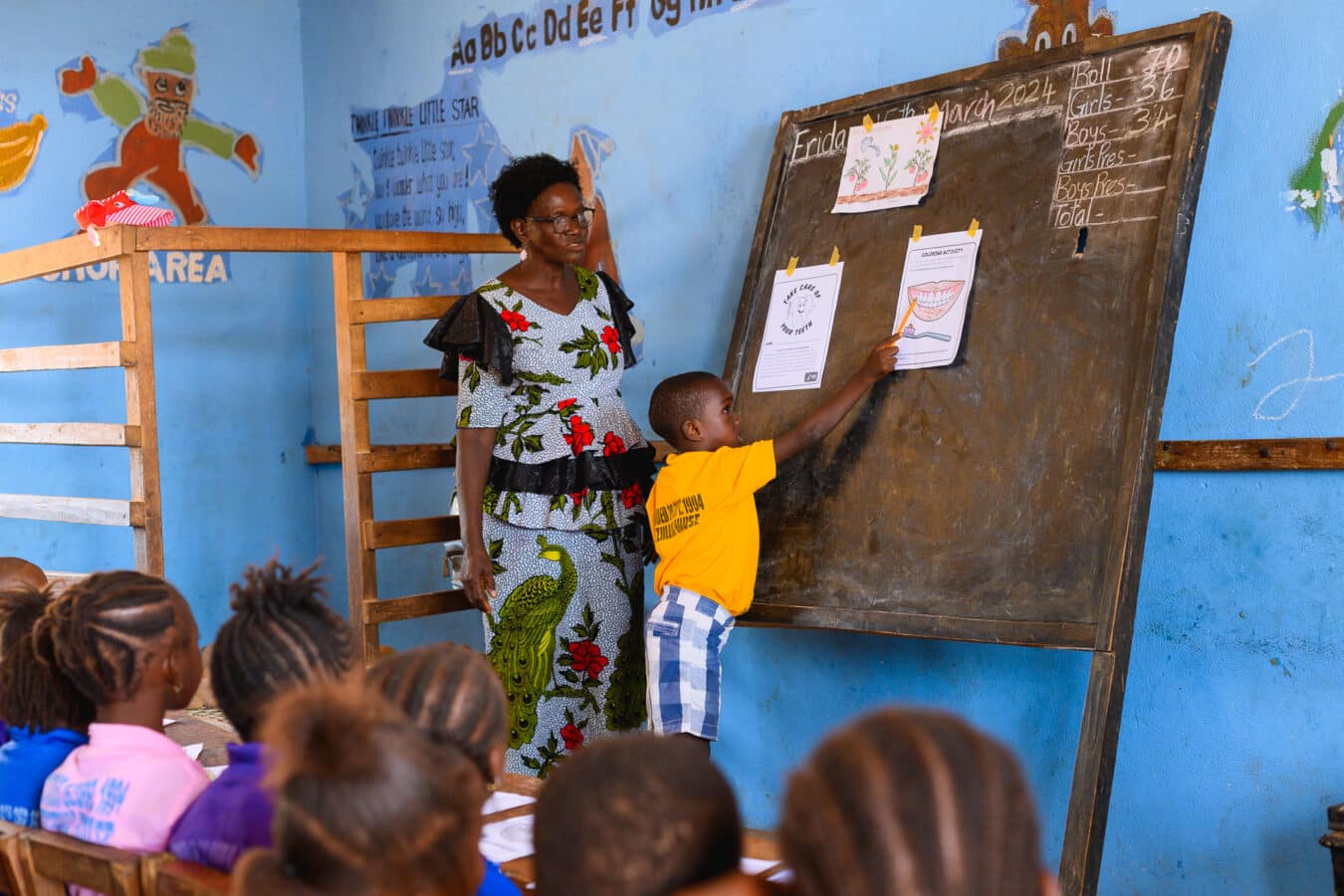
At a community health day, preschoolers learn about oral hygiene.
Lessons learned from the ICAP-led SHINE pilot have already played a crucial role in shaping ECD policy, especially in establishing best practices for conducting routine health and nutrition screening. The pilot also highlighted essential guidance for school staff on implementing these practices effectively. Led by a technical working group of representatives from MOH, MBSSE, MWRS, and partners, Sierra Leone developed and adopted national ECD policy guidelines on integrating health and nutrition services into preschools nationwide, laying the foundation for schools across the country to scale similar interventions.
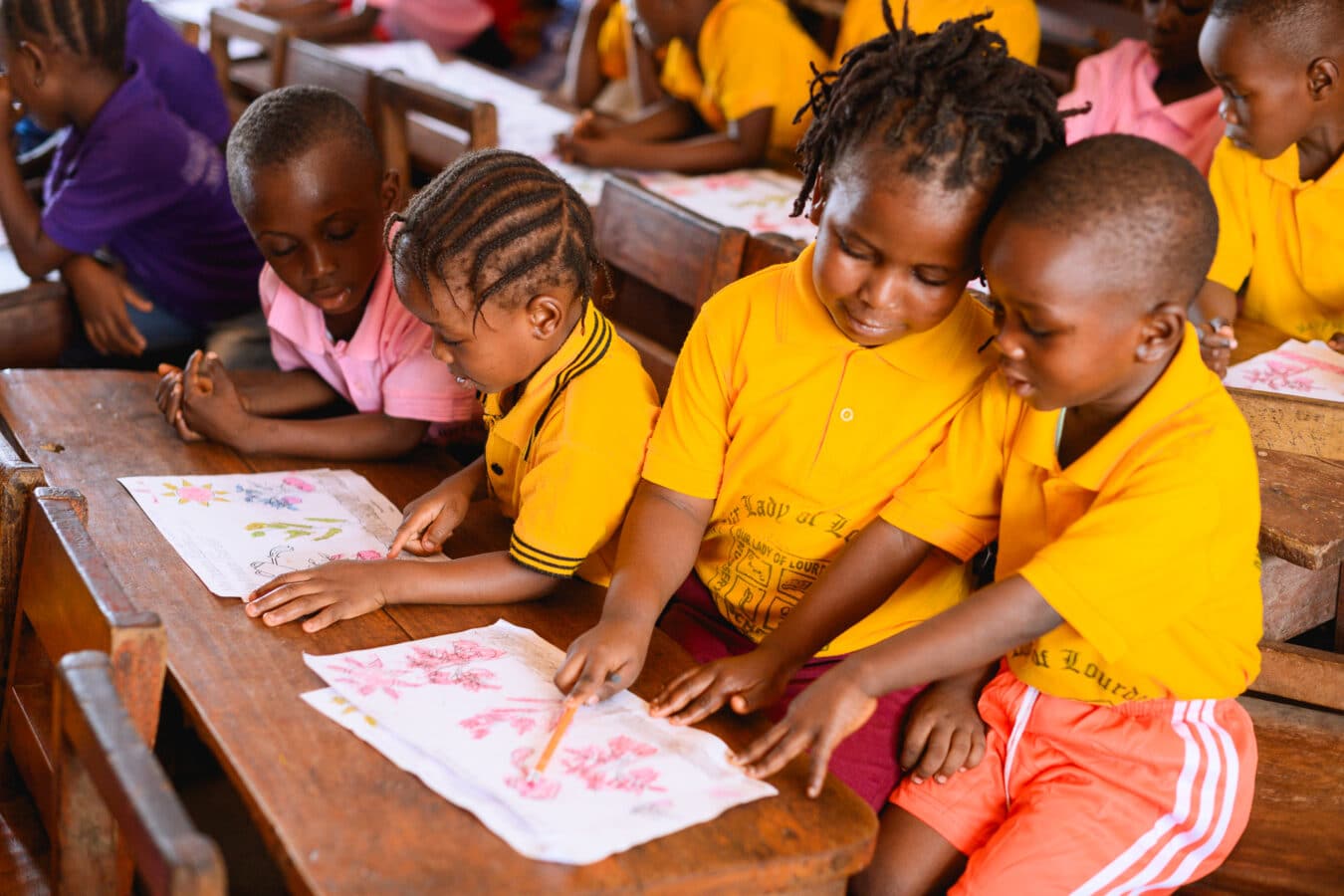
At community health days, preschool students and their families learn about topics such as nutrition, hygiene, and disease prevention, and receive free voluntary health screenings.
“Thanks to the SHINE project, Sierra Leone is proud to have nationally adopted policy guidelines for integrating health services into preschools,” said Madam Melody Martin, deputy director of ECD in Sierra Leone, “setting a strong foundation for improving both health and education outcomes for our young children and ensuring they receive the comprehensive support needed to thrive in and out of the classroom.”
“As the SHINE pilot nears completion, its success has been widely recognized by the government of Sierra Leone,” said Emily Gogra, deputy minister of MBSSE. “We are already making plans to replicate this model in other districts and are actively working to secure the necessary funding to expand the program nationwide, ensuring that more children benefit from this transformative initiative.”
About ICAP
A major global health organization that has been improving public health in countries around the world for two decades, ICAP works to transform the health of populations through innovation, science, and global collaboration. Based at Columbia Mailman School of Public Health, ICAP has projects in more than 40 countries, working side-by-side with ministries of health and local governmental, non-governmental, academic, and community partners to confront some of the world’s greatest health challenges. Through evidence-informed programs, meaningful research, tailored technical assistance, effective training and education programs, and rigorous surveillance to measure and evaluate the impact of public health interventions, ICAP aims to realize a global vision of healthy people, empowered communities, and thriving societies. Online at icap.columbia.edu


